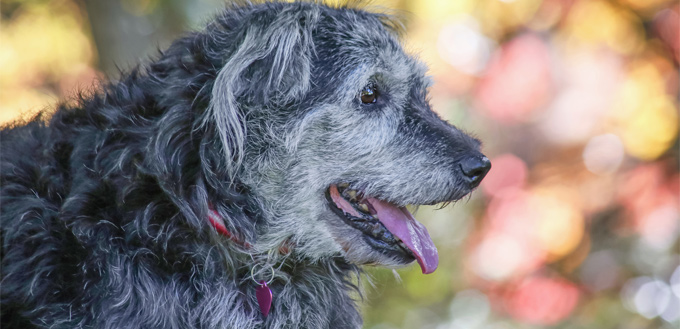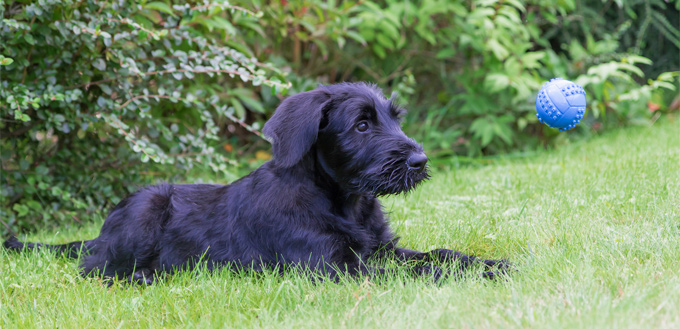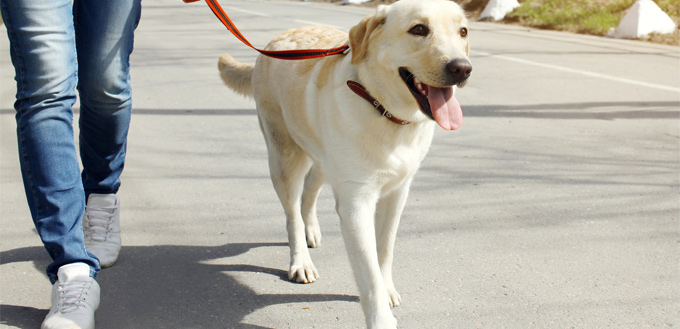Answering how long is a dog’s memory is a tricky question. And there are certainly many different arguments and beliefs that people assert in answer to it. Some believe that dogs have very long memories and others think their memories are more closely related to fish in how short term their very memories can be sometimes. In fact, there are some that argue that dogs don’t have memories at all and that the way they remember is very different to humans.
We look at all sides of the story here. We look at how those beliefs can be utilized to help train dogs in all manner of ways as well as understand their behaviours which can enhance and better our relationships with them for a closer bond. Realizing how dogs remember is key to understanding them as a species more fully. As a consequence of this understanding, we become better owners ourselves.

Associative Memory
How many dogs do you know that get excited when they see their owners pick up a lead, or say the word “walkies”? Probably the majority. And the ones that don’t are most likely to be so old they can no longer get up and jump around wildly.
Dogs must, therefore, remember what happened yesterday when their owner picked up their lead, right? Well, questionably this excitable behavior is not because their memory allows them to understand that putting their lead on means going out for a walk. Instead, it is more widely believed that dogs get excited at seeing their owners’ pick up their leads because they associate good things happening when their lead is picked up.
As a consequence, many dog behaviorists and dog trainers, therefore, believe that a dog’s memory is not long or even short term. Instead, it is associative learning that makes them behave the way they do. In the situation where a dog sees the associative trigger that they are being taken on a walk, arguably the most exciting and best bit about any dog’s day, they react excitedly because they know something good is about to happen.
Negative Associative Memory
This associative learning occurs in either good situations or in bad. Rescue dogs exhibit timid or nervous behaviour in situations that they associate with bad repercussions due to a negative experience they have had before. Loud bangs, aggressive men, or even trips in a car are all things that are known to make rescue dogs shake, wet themselves or sometimes snarl and bark so as to protect themselves from what they see as an intimidating scenario.
It is hard, therefore, from any point onwards to change this behavior in dogs. As a dog’s memory does not work like ours, dogs will forever associate a scary happenstance when certain actions happen. In fact, it does not even have to be rescue dogs being taught not to be anxious in certain scenarios. Protective behavior is often exhibited in dogs simply when the vacuum hoover goes on. They will all have seen this object startup and make a huge noise that will have scared them. From this point forward, they will associate the hoover with this noise and therefore feel the need to bark at it to save themselves from what may happen otherwise.
To lessen the chances of this type of behavior, trainers recommend trying to rewire a dog’s brain by creating positive repercussions in the situations that ordinarily bring out anxiety in canines (rescue or not). This can have tremendous results but sometimes all that can be achieved is a diminishing of nervousness, not a total eradication of it. Such is the strength of a dog’s associative mind. Unfortunately, this tends to mean, the stronger the negative association, the more difficult it is to reverse into a positive association that sees a dog’s anxiety reduced to merely pinning their ears back.
It’s not impossible, however, so as with all training, just keep going with little and often positive reinforcement and hopefully, your dog will become more confident in the long run.
Imprinting In Dogs
This form of associative behavior is also commonly known as imprinting. It is why it is possible to train a puppy to do tricks or to go to the loo outside.
In the past, when it was believed that dogs’ memories worked like ours, a common form of potty training for dogs was to rub their noses in any urination that happened inside. The reason, now, that this form of training has been usurped by positive reinforcement is that it is widely accepted that dogs actually had no idea what the reason was for why they were being reprimanded. As the punishment would always occur several moments, if not longer, after the dog had urinated, they would have no memory of the fact that it was them who had gone to the loo in the house. So instead of learning that there were repercussions to their actions, all they do is learn to fear their owner due to the severity and aggressive nature of the reprimand. No owner will want this to happen, but it was a form of training that was widely used when a dog’s brain was less understood.
Positive Reinforcement
This is where positive reinforcement comes in. In the case of housebreaking, if a dog is actively encouraged to go to the toilet outside with treats and praise, owners soon see that their dogs will “remember” to follow that course in future and not urinate inside. In the case of puppies, owners can ask their pets to go outside every half an hour. On the times that they go to the loo outside, give them a treat or a big cuddle or dog toy when they come back into the house. This will start to bring positive associative memory into play so that only what is deemed as good behaviour is seen. Additionally, by using positive reinforcement as a form of training, owners also enhance and better the bond they have with their pet through positive imprinting. For a wider selection of choices, check out our dog treats guide.

Long-Term Memory
This bond, however, is one of the arguments for why some still believe that a dog most definitely does have long-term memory. For, if they don’t, why do they get excited by their owner coming home from work every day? Or, for example, in the most extreme cases, dogs recognising their military owners who return from a year serving abroad? All dog lovers will have seen the YouTube videos of military personnel being reunited with their pets, only for their pets to pin them to the floor and lick their faces emphatically. Behavior like this does certainly beg the question if they don’t remember like we do, why do these dogs exhibit such a strong reaction to a returning owner?
It is often argued therefore that dogs have a better long-term memory than a short-term one. And it is due to this imbalance that sees them make what we would believe to be “quirky” decisions at best. So while they can remember people and owners, they don’t remember that chewing on an expensive pair of shoes is a bad decision. This is because they cannot reason, or remember to reason, that the next step in the course of action that they have taken results in an annoyed owner.
Instinctive Reaction vs Logic
Those who uphold the belief that dogs only remember in terms of imprinting and association, however, would argue that this sometimes illogical behavior occurs because they don’t have a long-term or even a short-term memory. That their behavior is solely driven by instinctive reaction versus logic. This argument is steeped in the thought that if dogs did have a short term or long term memory, they would realize, or remember, the result of their actions. However, imprinters believe that this requires an extra step – that of reason. This is why imprinters believe a dog’s brain can only ever remember in an instinctive, reactionary way through association.

Dogs and The Concept of Time
Imprinters also believe that dogs have a very little concept of time, so those that leave them for a whole day for the office really should not feel as guilty as they often do. This is because imprinters feel that dogs have no idea whether their owners have left the house for 8 minutes or 8 hours.
What they do admit is that dogs can gauge when their owners are meant to return home due to the level of smell that is in the house. Experiments have been conducted in the past to see how or why some dogs seem to be able to tell the time given that they are often patiently waiting in the window for their owners to return home from work – at the correct hour too. It was found that if an owner’s scent or perfume was sprayed into the home regularly throughout the day that the pet was not there waiting in the window when his or her owner returned at 6. It was therefore concluded that dogs do not remember when their owners come home, and they definitely cannot tell the time, but simply their excellent sense of smell comes into play. By ascertaining that when an owner’s scent diminishes to a certain amount, they associate that level with their owner returning home for play, walks, food and cuddles!
So How Long Is A Dog’s Memory?
The answer to this really lies in which camp you sit when determining how your dog remembers episodes and occurrences in the first place.
If you believe that your dog remembers by imprinting and associative behavior, whilst you strictly believe they don’t have a long-term memory, their imprints still can last a lifetime. You only have to look at rescue dogs that remain scared of their own shadow their whole life to see that a negative experience that happened to them when they were a young puppy, can affect them forever more.
Or, in a happier example, dogs often remember old walking routes that they used to take regularly. They will know where to turn left, where to turn right, when to look to their owners for direction and where the best smelling bushes and trees are to investigate, even though they may not have gone on that specific walk for years. The most extreme example of this is when dogs who get lost manage to find their way home – be it just one mile from their front door or even further. This is all due to imprints left on their brains that they have positive associations with.
Those that believe dogs have memories much more akin to a human believe that dogs would remember the way home in the same way we do. That they recognize where they are and determine the course of action from there.

The main issue with this belief is that it does not explain when dogs repeatedly exhibit what owners deem to be naughty behavior. Given that some dogs regularly try to get into bins or destroy cushions by tearing them apart with their teeth, it is apparent that they do not really learn from their actions as they don’t remember what happens after they have started gnawing away on something they shouldn’t.
Related Post: Best Dog Proof Trash Cans
Regardless of what an owner concludes, however, one thing is for certain. Dogs adore their owners when they are loving, attentive and the most fun thing in their toy box. In return, owners invariably have a faithful friend for life that will always have a smile on their face when returning home – whether they have simply nipped to the shops or been away for a longer period of time. However a dog forms a bond with his or her owner – either through imprinting or through memory – it is a strong and often devoted tie that will stay with the owner for life.







